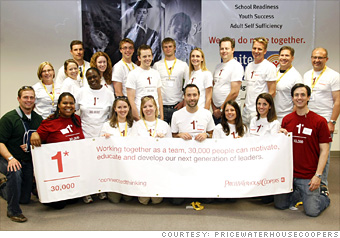A good listener is worth their weight in gold and one of the most important foundations in a relationship is for both partners to be good listeners.
So whether you are already in a relationship and are looking for a good listener to use as a role model or if you are looking for the love of your life and one of your criteria is someone who is a good listener, it is always good to be able to recognize a good listener. So the following are ten signs of a good listener:
You Can Feel That The Listener Is Fully Present And In the Moment With You:
You can tell the difference between someone who is fully in the moment with you versus someone who has their mind on something else is when you are talking to the unfocused person you will get an urge to rush through what you are saying versus when you are with a person who is totally focused on you, you will feel at home and that you have all the time in the world to say what you have to say. With a person who is totally focused on you, you will almost feel like sighing because you feel so supported and because you feel like you are truly the centre of their attention.
The Listener Will Keep Eye Contact With You:
The listener will keep constant eye contact with you, only looking away on occasion to prevent staring or awkwardness.
The Listener Will Nod, Smile And Give You Auditory Feedback:
A good listener will nod, smile and give you auditory feedback such as "Mm hum", "Yeah" "I see" or "No, really?" in a sincere and interested way to encourage you to continue and to indicate that they are listening.
The Listener Will Encourage You To Continue Talking:
As you are talking, they will encourage you to continue talking. For example they will say things like "That's really interesting" or "I find that interesting, please continue "or "I'd like to hear more."
The Listener Will Parrot Back What You Are Saying When Appropriate:
Every once in a while, a good listener will parrot back what you say to indicate they are paying attention and that they are right in your story with you.
The Listener Will Only Finish Your Sentence When Appropriate:
A good listener will only finish your sentence when the timing is right, not to try to rush you through your story or to help you out when you are at a loss of words, but to show that they are on the same wave length as you.
The Listener Goes By the 80% Listening, 20% Talking Rule:
A good listener knows that the art of being a good listener (whether that is because they just intuitively know or because they are actually aware of the rule) will listen approximately 80% of the time during the course of the conversation and spend only 20% of the conversation talking.
The Listener Will Keep The Conversation Focused on Your Topic of Discussion:
There is nothing more annoying than to open a conversation with someone and they change the topic on you in the middle of what you are trying to express. This often happens when the person gives you an example about themselves to show that they understand what you are saying but then they keep going with their example or take the opportunity while the attention is on themselves to switch topics. A good listener if they feel the need to use an example to back up what you were saying will keep it short and will return the conversation back to what you were talking about.
The Listener Will Ask You Thoughtful and Open-ended Questions About What You Are Talking About:
A good listener will ask you thoughtful questions that will lead you into opening up into further detail about your topic of discussion. For example, they may say something like " So you work in the Marketing Department, tell me about some of the duties that you are in charge of or what specifically are in you charge of or what aspects of your job do you love?"
The Listener Knows How to Empathize With You:
When a good listener feeds back how you are feeling, their description of the feeling or emotion will actually match how you are feeling. If they are off, they are dedicated to finding out how you are truly feeling versus throwing out a bunch of descriptions of how you are feeling in hopes of eventually guessing the correct feeling or emotion.
If you recognize a good listener in your life, tell them you how much you appreciate them. If you are still looking for a good listener to come into you life, it is both worth the search and the wait, because not only will they create a wonderful communication foundation for your relationship, they will always make you feel special and supported in expressing yourself.
References:
http://hubpages.com/hub/10-Signs-of-a-Good-Listener
Thursday, November 18, 2010
How to be a good leader
HOW TO BE A GOOD LEADER
* Remember: leadership skills and techniques can be learned. You don't have to be a natural leader. Very few people are.
* Care for your team. That means knowing what matters to each member: their health, their partner, their children, their relatives, their interests, their hopes, their fears.
* Stay close to your team. At some point, every day, walk around the office and say "Hi" to everyone who works for you. If you're not in the office that day, call and see how people are. This gives you a chance to enquire or encourage and gives them an opportunity to raise issues or make suggestions.
* Meet your team. Regularly - daily, weekly or monthly, depending on your place and type of work - have meetings of all the members of the team. Keep these meetings short, focused and action-orientated. Make sure every member of the team contributes in some way and acknowledge that.
* Train your team. Every team member should have at least two days training a year. Newer and more senior colleagues should have more. If they don't ask to go on training sessions, suggest some suitable courses.
* Grow your team. Through varied experience and regular training, you should be developing each team member to be more and more confident and more skilled.
* Inspire your team. Consider making available a motivational quote or story every week or month [for lots of good quotes click here].
* Celebrate with your team. This might be a personal event, such as a member's birthday or anniversary, or a professional occasion, such as completing a project or winning a contract.
* Socialize with your team. Have lunch or an after-work drink with them, especially when a member has a birthday or there's another reason to celebrate.
* Set objectives for each team member. As far as possible, these objective such be SMART - Specific Measurable Achievable Resourced Timed.
* Review the performance of each team member. At least once a year - at least quarterly for the first year of a new team member - have a review session where you assess performance, give feed-back and agree future objectives and training.
* Thank constantly. The words "Thank you" take seconds to say, but mean so much.
* Praise constantly. The words "Well done" take seconds to say, but will be long remembered and appreciated.
* Communicate constantly. Don't assume that people know what you're doing, still less what you are planning or thinking. Tell them, using all the communication tools to hand: team briefings, electronic newsletters, organisational newspapers.
* Eliminate. Too often we do things because they've always been done. Life changes. Consider whether you could stop doing certain things altogether.
* Delegate. You don't have to do everything. Develop your team members by training them to do more and trusting them to take over some of the things you've been doing.
* Empower. A really effective leader sets clear objectives for his team members, but leaves detailed implementation of these objectives to the discretion and judgment of individual members of the team. As Second World War U.S. General George S. Patton put it: "Don't tell people how to do things. Tell them what to do and let them surprise you with their results”.
* Facilitate. A confident leader does not try to micro-manage his team, but makes it clear that, if team members need advice or assistance, he is always there to facilitate and support.
* Be on time. Always start meetings on time and finish them on time. Natural breaks keep people fresh. Short meetings concentrate the mind.
* Be seen. Don't just talk the talk, but walk the walk. So visit each unit or department for which you are responsible on a regular basis. Don't do this unannounced - you are not out to undermine other leaders or catch out staff. So arrange with the unit leader or departmental head when you'll visit and ask him or her to walk round with you.
* Make time. Managers are often very busy and this can deter people from approaching you, so make time for people and be approachable. People will appreciate you taking five minutes out of your busy schedule, especially if you act on/listen to what they say.
* Really listen. Many of us - especially those who think they are important - don't really listen, but instead think about what they're going to say next. Give the person speaking to you your full attention and really take on board what they are saying. [For more detailed advice on listening click here]
* Accept honest criticism. Criticism is hard to take, particularly from a relative, a friend, an acquaintance or a stranger - but it's a powerful tool of learning. Above all, assess criticism on merit, without regard to its originator.
* Think strategically. The doers cut a path through the jungle; the managers are behind them sharpening the machetes; the leaders find time to think, climb the nearest tree, and shout "Wrong jungle!" Find time to climb the trees.
* Have a mentor or buddy, someone doing similar work in the same or a similar organization with whom you can regularly and frankly discuss your progress and your problems as a leader.
* Have a role model, someone who can inspire you to be a truly great leader. If you can't find one, study Jed Bartlet as the American President in any episode of the television series "The West Wing".
* Constantly revisit and review these tips. In his seminal work, "The Seven Habits Of Highly Effective People", Stephen Covey puts it this way: "Sharpen the saw".
* Plan your succession. You won't be there forever and you may not be in control of the timing and circumstances of your departure. So start now to mentor and train at least one colleague who could take over from you.
References:
http://www.rogerdarlington.me.uk/Leader.html
* Remember: leadership skills and techniques can be learned. You don't have to be a natural leader. Very few people are.
* Care for your team. That means knowing what matters to each member: their health, their partner, their children, their relatives, their interests, their hopes, their fears.
* Stay close to your team. At some point, every day, walk around the office and say "Hi" to everyone who works for you. If you're not in the office that day, call and see how people are. This gives you a chance to enquire or encourage and gives them an opportunity to raise issues or make suggestions.
* Meet your team. Regularly - daily, weekly or monthly, depending on your place and type of work - have meetings of all the members of the team. Keep these meetings short, focused and action-orientated. Make sure every member of the team contributes in some way and acknowledge that.
* Train your team. Every team member should have at least two days training a year. Newer and more senior colleagues should have more. If they don't ask to go on training sessions, suggest some suitable courses.
* Grow your team. Through varied experience and regular training, you should be developing each team member to be more and more confident and more skilled.
* Inspire your team. Consider making available a motivational quote or story every week or month [for lots of good quotes click here].
* Celebrate with your team. This might be a personal event, such as a member's birthday or anniversary, or a professional occasion, such as completing a project or winning a contract.
* Socialize with your team. Have lunch or an after-work drink with them, especially when a member has a birthday or there's another reason to celebrate.
* Set objectives for each team member. As far as possible, these objective such be SMART - Specific Measurable Achievable Resourced Timed.
* Review the performance of each team member. At least once a year - at least quarterly for the first year of a new team member - have a review session where you assess performance, give feed-back and agree future objectives and training.
* Thank constantly. The words "Thank you" take seconds to say, but mean so much.
* Praise constantly. The words "Well done" take seconds to say, but will be long remembered and appreciated.
* Communicate constantly. Don't assume that people know what you're doing, still less what you are planning or thinking. Tell them, using all the communication tools to hand: team briefings, electronic newsletters, organisational newspapers.
* Eliminate. Too often we do things because they've always been done. Life changes. Consider whether you could stop doing certain things altogether.
* Delegate. You don't have to do everything. Develop your team members by training them to do more and trusting them to take over some of the things you've been doing.
* Empower. A really effective leader sets clear objectives for his team members, but leaves detailed implementation of these objectives to the discretion and judgment of individual members of the team. As Second World War U.S. General George S. Patton put it: "Don't tell people how to do things. Tell them what to do and let them surprise you with their results”.
* Facilitate. A confident leader does not try to micro-manage his team, but makes it clear that, if team members need advice or assistance, he is always there to facilitate and support.
* Be on time. Always start meetings on time and finish them on time. Natural breaks keep people fresh. Short meetings concentrate the mind.
* Be seen. Don't just talk the talk, but walk the walk. So visit each unit or department for which you are responsible on a regular basis. Don't do this unannounced - you are not out to undermine other leaders or catch out staff. So arrange with the unit leader or departmental head when you'll visit and ask him or her to walk round with you.
* Make time. Managers are often very busy and this can deter people from approaching you, so make time for people and be approachable. People will appreciate you taking five minutes out of your busy schedule, especially if you act on/listen to what they say.
* Really listen. Many of us - especially those who think they are important - don't really listen, but instead think about what they're going to say next. Give the person speaking to you your full attention and really take on board what they are saying. [For more detailed advice on listening click here]
* Accept honest criticism. Criticism is hard to take, particularly from a relative, a friend, an acquaintance or a stranger - but it's a powerful tool of learning. Above all, assess criticism on merit, without regard to its originator.
* Think strategically. The doers cut a path through the jungle; the managers are behind them sharpening the machetes; the leaders find time to think, climb the nearest tree, and shout "Wrong jungle!" Find time to climb the trees.
* Have a mentor or buddy, someone doing similar work in the same or a similar organization with whom you can regularly and frankly discuss your progress and your problems as a leader.
* Have a role model, someone who can inspire you to be a truly great leader. If you can't find one, study Jed Bartlet as the American President in any episode of the television series "The West Wing".
* Constantly revisit and review these tips. In his seminal work, "The Seven Habits Of Highly Effective People", Stephen Covey puts it this way: "Sharpen the saw".
* Plan your succession. You won't be there forever and you may not be in control of the timing and circumstances of your departure. So start now to mentor and train at least one colleague who could take over from you.
References:
http://www.rogerdarlington.me.uk/Leader.html
Monday, November 15, 2010
Successful CV
WRITING A CV RESUME
If you are looking for a job, then it is very important that you understand how to offer yourself in the best way to an employer.
This is done by writing a 'CV' (curriculum vitae - Latin for 'life story'), called in some countries a 'resume'.
Different countries may have different requirements and styles for CV resumes. So you must follow the correct practice for your culture and country. However, we will try to give you important principles and advice.
WHAT IS A CV RESUME FOR?
A CV resume is quite simply an 'advert' to sell yourself to an employer. You should send a CV to an employer when they ask for one in a job advert, or when you are inquiring if any jobs are available. So the purpose of your CV is to make you attractive, interesting, worth considering to the company and so receive a job interview.
An employer may have several hundred inquiries about a single job, he or she will only choose a few people who appear suitable for interview.
Therefore, your CV must be as good as you can make it.
GENERAL ADVICE
If you are a student, there is probably a career advice office in your place of study. They are there to help. They may have fact-sheets of advice on how to prepare a CV. Make full use of them. However, employers do not want to see CVs which are all written in exactly the same way. Therefore, do not just copy standard CV samples! Your CV should be your own, personal, and a little bit different.
A CV should be constructed on a word-processor (or at least typed), well laid out and printed on a good quality printer. Do use bold and/or underline print for headings. Do not use lots of different font types and sizes. You are not designing a magazine cover! Do use plenty of white space, and a good border round the page. Do use the spell-check on your computer! (Or check that the spelling is correct in some way) Consider using 'bullets' to start sub-sections or lists.
As you are using a computer or word-processor, you can easily 'customise' your CV if necessary, and change the layout and the way you write your CV for different employers.
Picture yourself to be a busy manager in the employer's office. He (or she) may have to read through 100 CVs in half an hour, and will have two piles - 'possibles' and 'waste-bin'.
So yours must be easy to read, short and attractive.
There are two communication principles to remember:
*'Keep it simple,.
*'If they didn't hear it, you didn't say it'.
So, when you have written a first attempt at your CV, get someone else to look at it, and tell you how to make it better.
Ask your friends, your tutors or teachers, your career office, family friends in business. What you have written may seem simple and obvious to you, but not to an employer! Go through it again and again with a red pen, making it shorter, more readable, more understandable!
Before you start
Sit down with a piece of paper. Look at the job(s) that you are applying for.
Consider how your skills, education, and experience compare with the skills that the job requires.
How much information do you have about the job description?
Sometimes employers do not give enough information.
Ask for more detail if needed.
Spend time researching detail about the job(s) that interest you and information about the employer - their structure, products, successes, and approach - from:
• Their own publicity, reports and publications
• A library (business reports, trade papers)
• College career office
• Newspaper reports
• The Internet
WHAT TO INCLUDE
Personal details
Name, home address, college address, phone number, email address.
Do you have your own web homepage? Include it (if it's good!).
Education
Give places of education where you have studied - most recent education first. Include subject options taken in each year of your course. Include any special project, thesis, or dissertation work.
Pre-college courses (high school, etc.) should then be included, including grades. Subjects taken and passed just before college will be of most interest. Earlier courses, taken at say age 15-16, may not need much detail.
Work experience
List your most recent experience first. Give the name of your employer, job title, and very important, what you actually did and achieved in that job. Part-time work should be included.
Interests
They will be particularly interested in activities where you have leadership or responsibility, or which involve you in relating to others in a team. A one-person interest, such as stamp-collecting, may be of less interest to them, unless it connects with the work you wish to do. Give only enough detail to explain. (If you were captain of a sports team, they do not want to know the exact date you started, how many games you played, and how many wins you had! They will ask at the interview, if they are interested.) If you have published any articles, jointly or by yourself, give details.
If you have been involved in any type of volunteer work, do give details.
Skills
Ability in other languages, computing experience, or possession of a driving license should be included.
References
Usually give two names - one from your place of study, and one from any work situation you have had. Or if this does not apply, then an older family friend who has known you for some time. Make sure that referees are willing to give you a reference. Give their day and evening phone numbers if possible.
Length
Maybe all you need to say will fit onto one sheet of A4. But do not crowd it - you will probably need two sheets. Do not normally go longer than this. Put page numbers at the bottom of the pages - a little detail that may impress.
Style
There are two main styles of CV, with variations within them.
Chronological
Information is included under general headings - education, work experience, etc., with the most recent events first.
Skills based
You think through the necessary skills needed for the job you are applying for. Then you list all your personal details under these skill headings. This is called 'targeting your CV', and is becoming more common, at least in UK.
But it is harder to do. So take advice on whether it is OK in your country and culture, and how to do it best.
Optional extra
It can be good to start with a Personal Profile/Objective statement. This is a two or three sentence overview of your skills, qualities, hopes, and plans. It should encourage the employer to read the rest.
Presentation
You may vary the style according to the type of job, and what is accepted in your country and culture. So a big company would normally expect a formal CV on white paper. But, just perhaps, a CV applying for a television production job, or graphic designer, could be less formal - coloured paper, unusual design, etc!
Consider using a two column table to list your educational qualifications and courses taken.
Covering letter
When sending in a CV or job application form, you must include a covering letter. The purpose of the letter is:
To make sure that the CV arrives on the desk of the correct person. Take the trouble to telephone, and find the name of the person who will be dealing with applications or CVs, and address your letter, and envelope, to that person by name. (In a small company, it may be the managing director. In a medium size company, it may be the head of section/department. Only in a large company will there be a Personnel or Human Resource Department.)
To persuade the person to read your CV. So it must be relevant to the company, interesting, and well produced.
To clearly say what job you are interested in. If you are sending in a 'speculative' CV hoping that they may have work for you, explain what sort of work you are interested in. Do not say, 'I would be interested in working for Widgets Ltd', but say 'I believe my skills equip me to work in the product development department/accounts office/whatever'. When sending a speculative CV, you may try telephoning later to push your inquiry further.
To say why you want that particular job with that particular employer
To draw attention to one or two key points in the CV which you feel make you suited to that particular job with that particular employer.
Start your letter with an underline heading giving the job title you are interested in. (If you saw the job advertised, say where you saw it.)
Use the style and pattern of a business letter suited to your culture and country. Ask for advice about this. Try to find sample business letters so that you can follow style and layout.
Your career office may have a sheet about this, or show you a sample. The letter should only be on one side of A4 paper. It must be polite and easy to read.
Also mention when you are available for an interview. Ending your letter with a request for specific extra information may give a positive response.
Application forms
To apply for some jobs, the employer will send you an application form. You should still use a covering letter, and send your CV also unless told not to. Application forms need as much care to write as CVs. Remember the lessons earlier on this page. Here are some short guidelines:
Plan everything you will say on a separate piece of paper. Or make a photocopy of the form, and practice completing it first.
Only complete the real form when you are exactly sure what is the best thing to say.
It must be very neat and clear, and in black pen so that it can be easily photocopied.
You should 'angle' your answers to the company, in the same way as explained for your CV.
Do not say in answer to any question - 'see my CV'. They do not want to try to read both at the same time.
Take a photocopy to keep, so that you can remember exactly what you said. If you are called to interview, take this copy with you into the interview.
Other points
Keep copies of all letters, applications forms, and CVs sent, and records of telephone calls and names of those you spoke to.
The interview
Learning how to handle an interview is also very important. Your college career office or library may have a sheet or booklet on interview technique. Take as much advice as you can. Try and 'practice' an interview. Ask a friend, or college teacher, to pretend to interview you.
Be positive, and confident (if you can!) but not over-confident. Be well-informed about the company, its record and achievements, about the job and why you want it. Have questions ready to ask about the company and the job. If you are not accepted, some employers may be kind enough to look at your interview notes, and explain to you how you could improve your CV and interview technique. Ask - you can only be refused, and it shows you are prepared to develop and learn; they may make a note about you for future reference.
There is also a good book which may help you:
THE PERFECT CV,
by Tom Jackson and Ellen Jackson,
published in USA by Doubleday,
and in UK by Judy Pratkus Ltd, ISBN: 0 7499 1693 1.
References:
http://www.soon.org.uk/cvpage.htm
If you are looking for a job, then it is very important that you understand how to offer yourself in the best way to an employer.
This is done by writing a 'CV' (curriculum vitae - Latin for 'life story'), called in some countries a 'resume'.
Different countries may have different requirements and styles for CV resumes. So you must follow the correct practice for your culture and country. However, we will try to give you important principles and advice.
WHAT IS A CV RESUME FOR?
A CV resume is quite simply an 'advert' to sell yourself to an employer. You should send a CV to an employer when they ask for one in a job advert, or when you are inquiring if any jobs are available. So the purpose of your CV is to make you attractive, interesting, worth considering to the company and so receive a job interview.
An employer may have several hundred inquiries about a single job, he or she will only choose a few people who appear suitable for interview.
Therefore, your CV must be as good as you can make it.
GENERAL ADVICE
If you are a student, there is probably a career advice office in your place of study. They are there to help. They may have fact-sheets of advice on how to prepare a CV. Make full use of them. However, employers do not want to see CVs which are all written in exactly the same way. Therefore, do not just copy standard CV samples! Your CV should be your own, personal, and a little bit different.
A CV should be constructed on a word-processor (or at least typed), well laid out and printed on a good quality printer. Do use bold and/or underline print for headings. Do not use lots of different font types and sizes. You are not designing a magazine cover! Do use plenty of white space, and a good border round the page. Do use the spell-check on your computer! (Or check that the spelling is correct in some way) Consider using 'bullets' to start sub-sections or lists.
As you are using a computer or word-processor, you can easily 'customise' your CV if necessary, and change the layout and the way you write your CV for different employers.
Picture yourself to be a busy manager in the employer's office. He (or she) may have to read through 100 CVs in half an hour, and will have two piles - 'possibles' and 'waste-bin'.
So yours must be easy to read, short and attractive.
There are two communication principles to remember:
*'Keep it simple,.
*'If they didn't hear it, you didn't say it'.
So, when you have written a first attempt at your CV, get someone else to look at it, and tell you how to make it better.
Ask your friends, your tutors or teachers, your career office, family friends in business. What you have written may seem simple and obvious to you, but not to an employer! Go through it again and again with a red pen, making it shorter, more readable, more understandable!
Before you start
Sit down with a piece of paper. Look at the job(s) that you are applying for.
Consider how your skills, education, and experience compare with the skills that the job requires.
How much information do you have about the job description?
Sometimes employers do not give enough information.
Ask for more detail if needed.
Spend time researching detail about the job(s) that interest you and information about the employer - their structure, products, successes, and approach - from:
• Their own publicity, reports and publications
• A library (business reports, trade papers)
• College career office
• Newspaper reports
• The Internet
WHAT TO INCLUDE
Personal details
Name, home address, college address, phone number, email address.
Do you have your own web homepage? Include it (if it's good!).
Education
Give places of education where you have studied - most recent education first. Include subject options taken in each year of your course. Include any special project, thesis, or dissertation work.
Pre-college courses (high school, etc.) should then be included, including grades. Subjects taken and passed just before college will be of most interest. Earlier courses, taken at say age 15-16, may not need much detail.
Work experience
List your most recent experience first. Give the name of your employer, job title, and very important, what you actually did and achieved in that job. Part-time work should be included.
Interests
They will be particularly interested in activities where you have leadership or responsibility, or which involve you in relating to others in a team. A one-person interest, such as stamp-collecting, may be of less interest to them, unless it connects with the work you wish to do. Give only enough detail to explain. (If you were captain of a sports team, they do not want to know the exact date you started, how many games you played, and how many wins you had! They will ask at the interview, if they are interested.) If you have published any articles, jointly or by yourself, give details.
If you have been involved in any type of volunteer work, do give details.
Skills
Ability in other languages, computing experience, or possession of a driving license should be included.
References
Usually give two names - one from your place of study, and one from any work situation you have had. Or if this does not apply, then an older family friend who has known you for some time. Make sure that referees are willing to give you a reference. Give their day and evening phone numbers if possible.
Length
Maybe all you need to say will fit onto one sheet of A4. But do not crowd it - you will probably need two sheets. Do not normally go longer than this. Put page numbers at the bottom of the pages - a little detail that may impress.
Style
There are two main styles of CV, with variations within them.
Chronological
Information is included under general headings - education, work experience, etc., with the most recent events first.
Skills based
You think through the necessary skills needed for the job you are applying for. Then you list all your personal details under these skill headings. This is called 'targeting your CV', and is becoming more common, at least in UK.
But it is harder to do. So take advice on whether it is OK in your country and culture, and how to do it best.
Optional extra
It can be good to start with a Personal Profile/Objective statement. This is a two or three sentence overview of your skills, qualities, hopes, and plans. It should encourage the employer to read the rest.
Presentation
You may vary the style according to the type of job, and what is accepted in your country and culture. So a big company would normally expect a formal CV on white paper. But, just perhaps, a CV applying for a television production job, or graphic designer, could be less formal - coloured paper, unusual design, etc!
Consider using a two column table to list your educational qualifications and courses taken.
Covering letter
When sending in a CV or job application form, you must include a covering letter. The purpose of the letter is:
To make sure that the CV arrives on the desk of the correct person. Take the trouble to telephone, and find the name of the person who will be dealing with applications or CVs, and address your letter, and envelope, to that person by name. (In a small company, it may be the managing director. In a medium size company, it may be the head of section/department. Only in a large company will there be a Personnel or Human Resource Department.)
To persuade the person to read your CV. So it must be relevant to the company, interesting, and well produced.
To clearly say what job you are interested in. If you are sending in a 'speculative' CV hoping that they may have work for you, explain what sort of work you are interested in. Do not say, 'I would be interested in working for Widgets Ltd', but say 'I believe my skills equip me to work in the product development department/accounts office/whatever'. When sending a speculative CV, you may try telephoning later to push your inquiry further.
To say why you want that particular job with that particular employer
To draw attention to one or two key points in the CV which you feel make you suited to that particular job with that particular employer.
Start your letter with an underline heading giving the job title you are interested in. (If you saw the job advertised, say where you saw it.)
Use the style and pattern of a business letter suited to your culture and country. Ask for advice about this. Try to find sample business letters so that you can follow style and layout.
Your career office may have a sheet about this, or show you a sample. The letter should only be on one side of A4 paper. It must be polite and easy to read.
Also mention when you are available for an interview. Ending your letter with a request for specific extra information may give a positive response.
Application forms
To apply for some jobs, the employer will send you an application form. You should still use a covering letter, and send your CV also unless told not to. Application forms need as much care to write as CVs. Remember the lessons earlier on this page. Here are some short guidelines:
Plan everything you will say on a separate piece of paper. Or make a photocopy of the form, and practice completing it first.
Only complete the real form when you are exactly sure what is the best thing to say.
It must be very neat and clear, and in black pen so that it can be easily photocopied.
You should 'angle' your answers to the company, in the same way as explained for your CV.
Do not say in answer to any question - 'see my CV'. They do not want to try to read both at the same time.
Take a photocopy to keep, so that you can remember exactly what you said. If you are called to interview, take this copy with you into the interview.
Other points
Keep copies of all letters, applications forms, and CVs sent, and records of telephone calls and names of those you spoke to.
The interview
Learning how to handle an interview is also very important. Your college career office or library may have a sheet or booklet on interview technique. Take as much advice as you can. Try and 'practice' an interview. Ask a friend, or college teacher, to pretend to interview you.
Be positive, and confident (if you can!) but not over-confident. Be well-informed about the company, its record and achievements, about the job and why you want it. Have questions ready to ask about the company and the job. If you are not accepted, some employers may be kind enough to look at your interview notes, and explain to you how you could improve your CV and interview technique. Ask - you can only be refused, and it shows you are prepared to develop and learn; they may make a note about you for future reference.
There is also a good book which may help you:
THE PERFECT CV,
by Tom Jackson and Ellen Jackson,
published in USA by Doubleday,
and in UK by Judy Pratkus Ltd, ISBN: 0 7499 1693 1.
References:
http://www.soon.org.uk/cvpage.htm
Wednesday, November 3, 2010
What is your plan to do in the future? These are some best companies that you can work for ...( Part II)
Scripps Health
2010 Best Companies rank: 40
Current openings: 510Clinical positions such as registered nurses, imaging techs, laboratory and pharmacy staff; managers and professionals in accounting, finance, IT, HR, compliance, biomedical and quality assurance; as well as clinical trials assistants, clinical lab staff and scientists for its research and genomics divisions.
What are you looking for?
Talented and compassionate [people].... If you are enthusiastic about your interests and passionate about your profession and what you give back to an organization, then you might possibly be the next Scripps new hire.
Any secrets to impressing your recruiter?
It's key for potential employees to find a position they love, and that their values match... our values of quality, respect and efficiency
Our total focus is on providing patients with the best medical care possible in a supportive and compassionate environment. To impress our recruiters, share an experience or story where you made a positive change in someone's life or provided the best customer service or patient care. --Interview with Vic Buzachero, corporate senior VP, human resources
Ernst & Young

Interns compete at a team challenge during E&Y's annual leadership conference.
2010 Best Companies rank: 44
Current openings: 622Opportunities in a wide range of areas, including finance, taxes, supply chain, customer, strategic direction and program management; IT, people and organizational change consulting. Skills in demand include finance transformation, business performance management, procurement, logistics, pricing as well as Oracle, SAP, Hyperion and other technology platforms and tools. Experience in restructuring, valuation, transaction integration and transaction tax also is in sought.
What are you looking for?
In addition to having the requisite technical experience, we want candidates who are truly proactive, strong team members. [They should be] highly adaptable to change and have a high amount of intellectual curiosity.
Any secrets to impressing your recruiter?
Have a positive and enthusiastic attitude, be passionate about what you do, and describe specific experiences and results you've achieved [as well as] what you want to achieve. --Interview with Larry Nash, recruiting director
USAA
2010 Best Companies rank: 45
Current openings: 650Wealth relationship managers, financial advisors, financial planners, bank originators, software systems engineers, credit risk advisors, marketing managers, business technical architects, and business planners.
What are you looking for?
People "with the heart and passion to serve our members - the men and women in the military and their families." It helps to have military affiliation or knowledge. The best-qualified candidates have diverse backgrounds and experiences.
Any secrets to impressing your recruiter?
We're impressed by a crisp resume, knowledge of our company, and a passion for wanting to be part of the USAA family. --Interview with Robie Cline, executive director, public communications
Booz Allen Hamilton
2010 Best Companies rank: 52
Current openings: 695Entry-level and experienced professionals in such areas as cyber software and systems engineering, information technology, health, energy, and intelligence.
What are you looking for?
People are the center of what we do because we don't sell the kind of product you can roll off an assembly line.... We believe the best teams are comprised of people with diverse backgrounds and viewpoints.
We hire a lot of experienced government and industry hires and former military personnel as well as undergraduates. So we have four generations of talent, with a breadth of experience and perspective, to apply to our clients' toughest problems.
In addition to talent and intellectual prowess, [candidates should have] dedication to our firm's core values of client service, diversity, excellence, entrepreneurship, teamwork, professionalism, fairness, integrity, respect and trust. If these values resonate, [you] can be pretty sure Booz Allen will be a good fit.
Any secrets to impressing your recruiter?
Christopher Carlson, manager of university recruiting for Booz Allen Hamilton, says: "Consider jobs outside of your area of study, be open to relocation, and refer a friend to a recruiter if the job is not right for you." --Interview with Jennifer Lucas, media relations manager
Nordstrom
2010 Best Companies rank: 53
Current openings: 4,766Great salespeople and professionals who can help in areas of the business that interact with customers.
What are you looking for?
We want people who will have a relentless focus on helping us get better at taking care of our customers -- one at a time, each and every day. Understand there is just one rule at Nordstrom: Use good judgment in all situations.
Any secrets to impressing your recruiter?
Be real, be yourself and be motivated. We empower our salespeople to earn as much as they can sell. This is a place where success depends on your ability to help lots of customers and to make it your own business. --Interview with Colin Johnson, Nordstrom PR spokesman
CarMax
2010 Best Companies rank: 56
Current openings: 570Full and part-time positions for sales consultants, customer assistance reps, business office associates, technicians, parts associates, detailers, inventory/logistics associates, purchasing professionals, managers, IT analysts, attorneys, call center and collections reps, and credit analysts.
What are you looking for?
Strong integrity [and] customer service. A dependable, high-energy team player [who's flexible] with changing projects, environments and retail schedules.
Any secrets to impressing your recruiter?
Our best candidates communicate using 5 "E's" - energy, enthusiasm, eye contact, experience, and examples. --Interview with Elia Imler, public relations
Deloitte
2010 Best Companies rank: 70
Current openings: 11,000Opportunities range from interns to analysts to senior consultants, managers, directors and partners. In consulting, Deloitte seeks professionals in healthcare and life sciences, technology, financial services and the federal practice. On the tax side, it seeks international, multi-state and federal tax experience. In financial advisory, openings focus on analytics and forensics. In audit and advisory, technology and business risk professionals are needed.
What are you looking for?
We're looking for innovators -- people who will discover new ways to help our clients build stronger businesses, those who are not afraid to suggest how we can make the workplace more productive and bring ideas that can change the marketplace.
We seek motivated individuals who want to continue to learn and be challenged, who have superior interpersonal and communication skills and a willingness to travel.
We also look for candidates who show interest in serving the communities in which our people live and work.
Any secrets to impressing your recruiter?
Display a great attitude as well as a strong work ethic.... Understand who we are and what we do and demonstrate [your] level of interest and preparation by not only emphasizing relevant strengths, but asking insightful questions. --Interview with Diane Borhani, recruiting director
PricewaterhouseCoopers

PWC employees work with foster youth as part of a community service program in Denver.
2010 Best Companies rank: 71
Current openings: 5,097Opportunities in accounting, tax, advisory, marketing and other professional services for everyone from interns to senior managers and directors. Financial services is particularly hot.
What are you looking for?
We want to develop future leaders - candidates who can demonstrate the ability to produce results that will drive our high-performance culture. We're looking for people with great technical skills... passion for client service and proven relationship skills. In particular demand are those [with] intellectual curiosity -- a willingness to seek new opportunities and learn new skills.
Any secrets to impressing your recruiter?
Confidence and comfort with yourself helps others, including recruiters, be more comfortable with you. Communicate the skills and talents that differentiate you from other candidates. Don't be afraid to talk about your accomplishments and interests outside the office. Community service can show leadership traits that might not be apparent otherwise. --Interview with Genevieve Girault, communications
Now you have more ideas and information about the top companies that you want to work for. Let's try our best and make our dream come true. Good luck!!!!
Thursday, October 28, 2010
How to Profit From a Weak Dollar: Bet on Commodities
How to Profit From a Weak Dollar: Bet on Commodities
By PETER COHANBut lately, market watchers have been proclaiming the end of the dollar even more loudly -- thanks largely to U.S. dependence on China to finance our debt, and our clear future of annual deficits. For many investors, the question in this environment has been whether to bet on stocks, which have fallen 17% in the last decade, or to stay "safe" in money market funds yielding 0.4%. But there's a third way that could help the average investor: Placing bets on commodities through commodities mutual funds and ETFs.
And commodity prices have gone up quite dramatically -- particularly in recent weeks. As I wrote this week on DailyFinance, gasoline, oil, corn, cotton and wheat have all experienced price spikes, to name just a few that are likely to cut into consumers' budgets. Corn is up 25% in the last two weeks on strong demand and a smaller-than-expected harvest and it has spiked 54% in the last year. Cotton recently hit a 140-year record high and gasoline prices are up around 20 cents a gallon in the last few weeks as oil prices rise and traders expect new regulations that will boost the proportion of corn-based ethanol in gasoline from 10% to 15%.
Three Reasons For Rising Commodity Prices
To understand why commodity prices have gone up, you need to understand the supply and demand both for the underlying commodity and the currency in which it is traded -- and in many cases that currency is the dollar. As the dollar drops, the price of commodities traded in dollars goes up.
In fact, this catch-22 makes U.S. bonds a risky bet for China under almost any circumstance. If the dollar drops in value due to low interest rates and loose monetary policies, then when China gets its dollar-denominated interest payments, they are worth less when translated back into the higher-valued renminbi. But if the Fed raises interest rates, it would cause the value of those U.S. bonds to plunge, because bond prices move down when interest rates move up. A slightly offsetting factor is that if the Fed raised rates, it might strengthen the dollar, so as long as the Chinese held onto the bonds, the interest payments would be worth more. But the only scenario under which ownership of U.S. bonds would be good for China is if Dorn is wrong and deflation starts to take hold here. Then, the value of the bonds would rise. But deflation would be a real catastrophe for the U.S. economy.
For all of these reasons, China is taking steps to shift some of its holdings out of the dollar. According to Dorn, "China is responding by buying more Japanese bonds and finding other ways to diversify away from U.S. government securities."
Meanwhile, the Fed's moves to increase the money supply to boost the U.S. economy could cause inflation to exceed the Fed's target range. As Dorn argued, this could lead to much higher U.S. interest rates as the Fed switches gears to fight spiking prices, which would further drive down the value of Chinese holdings. The result would be much higher interest rates and a weaker dollar as the U.S. tries to sell $10 trillion worth of government bonds over the next decade to finance its budget deficits.
How Keep Ahead of a Falling Dollar
Investing in individual commodities is very risky. But there are diversified Commodity Exchange Traded Funds (ETFs) and mutual funds that might be worth considering. Here are four ETFs about which SeekingAlpha posted:
- iShares GSCI Commodity-Indexed Trust ETF (GSG). Expense ratio: 0.75%, 12 month return: -8.12%
- iPath Dow Jones-AIG Commodity Index Total Return ETN (DJP). Expense ratio: 0.75%, 12 month return: 4.05%
- iPath S&P GSCI Total Return Index ETN (GSP). Expense ratio: 0.75%, 12 month return: -6.44%
- PowerShares DB Commodity Index Tracking Fund ETF (DBC). Expense ratio: 0.85%, 12 month return: -0.32%
- Fidelity Global Commodity Stock Fund (FFGCX). Expense ratio: 1.42%, 12 month return: 10.24%
- PIMCO Commodity Real Return Strategy (PCRAX). Expense ratio: 1.24%, 12 month return: 2.78%
As an investor, you have to decide whether the risk of missing out on profiting from a further decline in the dollar is greater than the chance that you might be getting in at the top.
See full article from DailyFinance: http://srph.it/9WyYd5
Saturday, October 9, 2010
Monday, September 20, 2010
No Organizational Behavior class today. :DDDDD...we have more time to study for our Acct test on this Tues. Cross my fingers, it 's not that hard like what my friends told me..Be concentrated and good luck everyone :)
Saturday, September 18, 2010
What is your plan to do in the future? These are some best companies that you can work for :)
They're hiring!
These 22 Best Companies to Work For have at least 500 openings each, totaling more than 87,750 jobs. What are they looking for in a new hire? Before you apply, check out these excerpts from our interviews with HR professionals and others in the know.
2010 Best Companies rank: 2
Current openings: 631Financial advisors and branch office administrators.
What are you looking for?
For financial advisors, we look for... self-starters who enjoy working with and helping other people. For branch office administrators... we look for energetic individuals who can take the initiative to anticipate client and financial advisor needs.
Any secrets to impressing your recruiter?
For financial advisors: Our recruiters approach each candidate from a career management standpoint, attempting to ensure each candidate has a solid understanding of the work, the emphasis on putting clients' interests first and the appropriate commitment level to be successful.
For branch office administrators: Our recruiters are impressed with a candidate's past work experience and stability or loyalty with past employers. We look for an affable personality to meet and greet our clients. --Interview with Regina DeLuca-Imral, spokeswoman
Wegmans Food Markets
2010 Best Companies rank: 3
Current openings: 1,500Mostly in store operations, including customer-service team members, chefs, team leaders and department managers. There also are opportunities in distribution and manufacturing.
What are you looking for?
We look for employees [who] are food enthusiasts and passionate about providing incredible service to customers. Because we focus on helping customers make great meals easy, we look for employees willing to share their knowledge.
Any secrets to impressing your recruiter?
We focus on people who have diverse experiences and ideas, and exemplify our values by caring about and respecting others. We also look for people committed to continuously learning. --Interview with Wendy Gallucci, spokeswoman
Google
2010 Best Companies rank: 4
Current openings: 1,000 Positions across the globe and at all levels, ranging from software engineers and user-experience researchers to product marketing, finance and human resources professionals.
What are you looking for?
While we don't look for one type of person, Googlers do have a number of traits in common. Most notably, we find that the people who thrive here get energized by the challenge of solving complex problems, share our passion for using technology to make a difference in the lives of our users, demonstrate commitment to the broader community, and thrive working in ambiguous situations.
Any secrets to impressing your recruiter?
There really is no secret sauce. What we want most is for a candidate to be himself or herself. Candidates should bring their whole selves to the interview and not try to fit some mold that they think Google wants. We encourage you to be candid and active in your interview. Clearly articulate what skills you bring and how a role at Google fits into your broader career path. --Interview with Ann Pellegrini, people programs specialist
Qualcomm
2010 Best Companies rank: 9
Current openings: 617Engineering and business positions such as Linux software engineers, digital design engineers, 4G systems engineers, patent counsel, Smartbook architects, and product marketing director.
What are you looking for?
Candidates that have a passion for technology, a desire to innovate, and the skills to exceed the expectations of our customers.
Any secrets to impressing your recruiter?
An impressive candidate does their research on the company and on individuals they are going to interview with. They are also self-aware: confident in their strengths and honest about areas where they can improve. --Interview with Talia Tortora, corporate communications
Cisco
2010 Best Companies rank: 16
Current openings: 59545% are in Cisco's engineering and design organization, with job roles requiring networking, software, and/or electrical engineering expertise. 25% are in services, with roles for engineers (advanced and technical services) and project managers. Most opportunities are in sales, finance, marketing, IT, manufacturing, supply chain and HR.
What are you looking for?
First and foremost, strong collaborators. Candidates should have a focus on execution; they should be able to accelerate delivery of a product or project in a manner that meets quality standards while emphasizing speed and impact. We look for people with a track record of continuous learning who have been innovators -- and even disruptors -- within their respective disciplines.
Any secrets to impressing your recruiter?
Know the needs of the organization for which you're applying. Listen well and ask good questions. Chances are, if a candidate is being interviewed, Cisco already has a sense that he or she possesses the requisite knowledge, skills and experience. The interview team is assessing "organizational fit," and whether the candidate will be successful leveraging his [abilities] to make a sustainable impact. --Interview with Jennifer Ho, HR communications manager
Whole Foods Market
2010 Best Companies rank: 18
Current openings: 1,160Store positions in seafood, prepared foods, customer service, produce, floral and other areas.
What are you looking for?
We hire passion over experience.... We especially appreciate candidates who are regular shoppers at our stores or consumers of natural foods and products. And of course, a great smile and a sense of humor also go a long way at Whole Foods Market.
Any secrets to impressing your recruiter?
Be prepared for the interview (company research, prepared questions to ask, be on time). Demonstrate knowledge of our company philosophy and core values. Exhibit passion for our products and [desire] to share that information with our store customers. --Interview with Lisa Lavender, communications advisor
Genentech
2010 Best Companies rank: 19
Current openings: 523A wide range of positions, including opportunities for top-notch research scientists, clinical specialists, sales managers, medical directors, manufacturing technicians, packaging operators and IT specialists.
What are you looking for?
The ideal candidate has job-specific skills, of course, but we're also looking for individuals with curiosity, creativity, the ability to bring new ideas forward, a willingness to take intelligent risks, a collaborative spirit and passion for his or her area of expertise.
Any secrets to impressing your recruiter?
Be smart. Be up for a rigorous interview process. Be clear about why you want to work here. (Hint: not the free espresso.) --Interview with Amy Gartner, corporate relations
Be continue....
Friday, September 10, 2010
Highest paying jobs in the US
By Terence Channon Career Advisor Every Tuesday
You think that in order to make the big bucks, you have to get involved in the glamour professions, such as acting or professional athletics. You might be surprised to learn, however, that none of those professions made the top 10 or even the top 25 list of highest-paying jobs, according to the U.S. Department of Labor.
It should be noted that, according to the Department of Labor, 8 of the top 10 highest-paying professions were in the medical field. To avoid monotony, we excluded most of the medical professions and included the U.S. Department of Labor’s official list at the end of this article. Here are the top 10 highest-paying jobs in the U.S.
Training time: 6 years
Natural science managers oversee the work of other scientists, such as agricultural scientists, chemists, biologists, and geologists. Natural science managers are commonly employed in the research and development field and work in pharmaceutical and environmental consulting or municipal organizations. Natural science managers often own their own consulting or testing firms, and can serve as expert witnesses in court hearings.
A bachelor’s degree is absolutely required, and to work your way up the ladder, an MBA or doctorate is strongly encouraged. Fortunately, many employers will pay for educational costs. The best and highest-paid natural science managers have an aptitude for key business functions, such as marketing, sales and finance. This is common, as it often takes a combination of business acumen and specialized knowledge to present and communicate ideas and concepts in a sophisticated sales environment.
Training time: 4 to 6 years
Marketing managers, like CEOs, span all sorts of industries and levels of responsibility. A small accounting firm may have a marketing manager to help coordinate Yellow Page advertisements and chamber appearances, while this marketing manager's Fortune 500 peer is responsible for the complete tactical execution of a multimillion-dollar marketing budget that encompasses a plenitude of marketing media. Marketing managers can be expected to handle items such as public relations, brand development, media buying, collateral and promotions development, and even the financial metrics and analytics.
The responsibility scope is a function of the organization’s size and the outward focus of the company. For instance, a marketing manager at a Fortune 500 company serving the consumer audience will have a far larger task than the marketing manager at a small, niche business-to-business consulting firm. Communication skills, marketing prowess, and basic management skills all come into play. In most cases, marketing managers have a four-year degree, and an MBA will definitely help in higher-level executive marketing positions.
Training time: 4 to 8 years
Computer and information systems managers are responsible for the overall strategy and direction of the company’s information technology (IT) and systems plan. Many start out as programmers or data analysts, but as experience and conceptual knowledge is acquired, one can become capable of overseeing the information systems management of an entire enterprise. In today’s technological environment, most companies regard this as a highly valued position and pay accordingly. Elements of the job include overseeing a company’s IT security, information management, information technology deployment, software and application selection, revenue assurance, and compliance.
When the field was relatively new, there were stories of incredibly gifted programmers who rose to top positions without any formal training or education. Today, however, with the wide corporate acceptance of information technology, more of an emphasis is placed on new candidates having a four-year degree in computer science, computer engineering or mathematics, and even advanced degrees.
Training time: 9 years
Employed almost exclusively by the Federal Aviation Administration (FAA), air traffic controllers are responsible for the safe operation of private and commercial aircraft. Responsibilities include coordinating movement of air traffic to keep planes at safe distances from one another and to minimize traffic delays. Typically, a team works together to help planes position for takeoff and landing, taxi to the gate, and to communicate with pilots and warn about weather patterns.
To become an air traffic controller, you must enroll in an FAA-approved program and pass an aptitude test. Exceptions may be made for those with military or aviation experience. A four-year degree and three years of work experience are typically required, and you must apply to take the exam. If you are selected and you pass, you’ll have to attend a 12-week training session before working as a development controller for two to four years, and after that, you’ll be ready to be hired as an air traffic controller.
Training time: 7 years
The legal system affects nearly every aspect of our society -- and there is no shortage of attorney classifications that you can aspire to. We are all familiar with the personal injury and criminal attorneys, but the scope goes far beyond that. Environmental law, entertainment law, family law, real estate law, intellectual property, and civil law are a handful of the fields that need legal representation. Some attorneys choose to specialize in a particular industry, such as construction, waste management, securities, or insurance, while others will review agreements, represent the court or mediate.
The industry is highly regulated and adheres to a very stringent code of ethics. Lawyers must pass the bar examination offered by the state they wish to practice in. However, in most cases, to be eligible to sit for the bar, you must have a four-year degree and have graduated from an ABA-accredited law school, which takes about three years.
Training time: 8 years
There are quite a few specialties -- orthodontics, oral surgery and pediatrics to name a few -- within the dental field, although many opt to become general practitioners. Dentists in private practice will commonly oversee business operations, including administration and bookkeeping. All states require dentists to be licensed, so candidates must graduate from one of the 56 dental schools accredited by the ADA. Graduates must also pass both written and practical exams. While most dental schools require only two years of college-level education, most candidates obtain their bachelor’s degree. Dental school for general practitioners takes three to four years, and if you wish to specialize, you can plan on an additional two to five years of training.
Training time: 5 to 10 years
A pilot can not only captain a commercial airliner, but he can also fly helicopters, test aircraft, serve as an aviation director, crop dust, monitor traffic, and pilot cargo planes.
While everyone has heard of the grand benefits enjoyed by commercial airline pilots -- they fly only 100 hours per month due to Federal Aviation Administration (FAA) regulations -- it is not easy to obtain that status. Becoming certified as a pilot is not too stringent -- you need to be at least 18 years old and have at least 250 hours of flight experience to obtain the basic licenses. Commercial airline pilots need to be at least 23, have at least 1,500 hours in the air, and pass an array of FAA tests (written, flight and instrument).
A four-year degree is not necessary; however, the increasingly competitive landscape is making many airlines require a bachelor’s degree. Due to the number of required -- and generally expensive -- flight hours, many airline pilots have earned their experience in the military. There are, however, many private flight training schools. After being hired by an airline, it can take 5 to 15 years to become a captain and reap the rewards in terms of pay, benefits and choice of routes.
Training time: 6 to 7 years
Engineering managers are responsible for plans, coordination, research, design, and production activities. Frequently, engineering managers oversee natural science managers and information systems managers -- two professions that also made this list.
Typically, engineering managers determine specific technical or scientific goals, provide broad outlines, plan the execution and, in some cases, are responsible for the financial viability of a project. For example, engineering managers may be actively involved in the development of a real estate community, or they may work in the manufacturing space to solve technical problems. However, managers who deal with semiconductors and electronic components manufacturing are among the highest paid.
Most engineering managers have bachelor’s degrees, and many will pursue post-graduate degrees, such as an MBA, a Master of Science or a doctorate.
Training time: Varies
A CEO is the highest ranking official within a company (and often the highest paid), and they’re responsible for the strategic direction and day-to-day operational performance of the company. The CEO usually answers to the board of directors, which is elected by the shareholders. In smaller companies, however, the CEO is not only the Chairman of the Board, but he can also be the entire board of directors.
There are many paths to becoming a CEO. In large Fortune 500 companies, you are just as likely to see an employee with more than 30 years become the head honcho as you are to see the company hire a seasoned executive manager. It is also possible to form your own company and simply name yourself CEO and build your company until you are actually overseeing many levels of management and development.
In the corporate world, a bachelor’s degree is almost ubiquitous and it is encouraged to obtain an MBA, though it’s not necessary -- we all know that Bill Gates is an inspirational dropout.
Training time: 10 to 15 years
While many medical professions are high on the pay scale, those who perform surgery are the highest paid -- specifically, surgeons who specialize in the treatment of illness or injury. As such, most surgeons opt to specialize in a specific area, like the heart or the brain.
Even for general surgeons, the very granular knowledge required to effectively perform an operation can only be obtained through additional formal training and many years of hands-on experience. Of course, a four-year degree is required to go down this path, and biology or other sciences are preferred because these provide access to basic knowledge that will be applied in medical school. After college, plan for four years of medical school -- the first two years will be in classrooms, and the last two will involve working with patients under the direction of physician educators. A residency is the next step, and this can last from three to seven years, depending on the candidate’s desire to specialize. A candidate must also pass a licensing examination.
While the profession can be lucrative, it is certainly not easy or cheap: More than 80% of medical-school graduates carry a debt.
The top 24 according to the U.S. Department of Labor:
www.bls.gov
http://billinman.wordpress.com
www.streetdirectory.com
www.healthprofessions.ucr.edu
www.stetson.edu
You think that in order to make the big bucks, you have to get involved in the glamour professions, such as acting or professional athletics. You might be surprised to learn, however, that none of those professions made the top 10 or even the top 25 list of highest-paying jobs, according to the U.S. Department of Labor.
It should be noted that, according to the Department of Labor, 8 of the top 10 highest-paying professions were in the medical field. To avoid monotony, we excluded most of the medical professions and included the U.S. Department of Labor’s official list at the end of this article. Here are the top 10 highest-paying jobs in the U.S.
Number 10
Natural Sciences Manager
Highest salary: $97,560Training time: 6 years
Natural science managers oversee the work of other scientists, such as agricultural scientists, chemists, biologists, and geologists. Natural science managers are commonly employed in the research and development field and work in pharmaceutical and environmental consulting or municipal organizations. Natural science managers often own their own consulting or testing firms, and can serve as expert witnesses in court hearings.
A bachelor’s degree is absolutely required, and to work your way up the ladder, an MBA or doctorate is strongly encouraged. Fortunately, many employers will pay for educational costs. The best and highest-paid natural science managers have an aptitude for key business functions, such as marketing, sales and finance. This is common, as it often takes a combination of business acumen and specialized knowledge to present and communicate ideas and concepts in a sophisticated sales environment.
Number 9
Marketing Manager
Highest salary: $100,020Training time: 4 to 6 years
Marketing managers, like CEOs, span all sorts of industries and levels of responsibility. A small accounting firm may have a marketing manager to help coordinate Yellow Page advertisements and chamber appearances, while this marketing manager's Fortune 500 peer is responsible for the complete tactical execution of a multimillion-dollar marketing budget that encompasses a plenitude of marketing media. Marketing managers can be expected to handle items such as public relations, brand development, media buying, collateral and promotions development, and even the financial metrics and analytics.
The responsibility scope is a function of the organization’s size and the outward focus of the company. For instance, a marketing manager at a Fortune 500 company serving the consumer audience will have a far larger task than the marketing manager at a small, niche business-to-business consulting firm. Communication skills, marketing prowess, and basic management skills all come into play. In most cases, marketing managers have a four-year degree, and an MBA will definitely help in higher-level executive marketing positions.
Number 8
Computer and Information Systems Manager
Highest salary: $100,110Training time: 4 to 8 years
Computer and information systems managers are responsible for the overall strategy and direction of the company’s information technology (IT) and systems plan. Many start out as programmers or data analysts, but as experience and conceptual knowledge is acquired, one can become capable of overseeing the information systems management of an entire enterprise. In today’s technological environment, most companies regard this as a highly valued position and pay accordingly. Elements of the job include overseeing a company’s IT security, information management, information technology deployment, software and application selection, revenue assurance, and compliance.
When the field was relatively new, there were stories of incredibly gifted programmers who rose to top positions without any formal training or education. Today, however, with the wide corporate acceptance of information technology, more of an emphasis is placed on new candidates having a four-year degree in computer science, computer engineering or mathematics, and even advanced degrees.
Number 7
Air Traffic Controller
Highest salary: $100,430Training time: 9 years
Employed almost exclusively by the Federal Aviation Administration (FAA), air traffic controllers are responsible for the safe operation of private and commercial aircraft. Responsibilities include coordinating movement of air traffic to keep planes at safe distances from one another and to minimize traffic delays. Typically, a team works together to help planes position for takeoff and landing, taxi to the gate, and to communicate with pilots and warn about weather patterns.
To become an air traffic controller, you must enroll in an FAA-approved program and pass an aptitude test. Exceptions may be made for those with military or aviation experience. A four-year degree and three years of work experience are typically required, and you must apply to take the exam. If you are selected and you pass, you’ll have to attend a 12-week training session before working as a development controller for two to four years, and after that, you’ll be ready to be hired as an air traffic controller.
Number 6
Lawyer
Highest salary: $110,590Training time: 7 years
The legal system affects nearly every aspect of our society -- and there is no shortage of attorney classifications that you can aspire to. We are all familiar with the personal injury and criminal attorneys, but the scope goes far beyond that. Environmental law, entertainment law, family law, real estate law, intellectual property, and civil law are a handful of the fields that need legal representation. Some attorneys choose to specialize in a particular industry, such as construction, waste management, securities, or insurance, while others will review agreements, represent the court or mediate.
The industry is highly regulated and adheres to a very stringent code of ethics. Lawyers must pass the bar examination offered by the state they wish to practice in. However, in most cases, to be eligible to sit for the bar, you must have a four-year degree and have graduated from an ABA-accredited law school, which takes about three years.
Number 5
Dentist
Highest salary: $132,660Training time: 8 years
There are quite a few specialties -- orthodontics, oral surgery and pediatrics to name a few -- within the dental field, although many opt to become general practitioners. Dentists in private practice will commonly oversee business operations, including administration and bookkeeping. All states require dentists to be licensed, so candidates must graduate from one of the 56 dental schools accredited by the ADA. Graduates must also pass both written and practical exams. While most dental schools require only two years of college-level education, most candidates obtain their bachelor’s degree. Dental school for general practitioners takes three to four years, and if you wish to specialize, you can plan on an additional two to five years of training.
Number 4
Airline Pilot
Highest salary: $134,090Training time: 5 to 10 years
A pilot can not only captain a commercial airliner, but he can also fly helicopters, test aircraft, serve as an aviation director, crop dust, monitor traffic, and pilot cargo planes.
While everyone has heard of the grand benefits enjoyed by commercial airline pilots -- they fly only 100 hours per month due to Federal Aviation Administration (FAA) regulations -- it is not easy to obtain that status. Becoming certified as a pilot is not too stringent -- you need to be at least 18 years old and have at least 250 hours of flight experience to obtain the basic licenses. Commercial airline pilots need to be at least 23, have at least 1,500 hours in the air, and pass an array of FAA tests (written, flight and instrument).
A four-year degree is not necessary; however, the increasingly competitive landscape is making many airlines require a bachelor’s degree. Due to the number of required -- and generally expensive -- flight hours, many airline pilots have earned their experience in the military. There are, however, many private flight training schools. After being hired by an airline, it can take 5 to 15 years to become a captain and reap the rewards in terms of pay, benefits and choice of routes.
Number 3
Engineering Manager
Highest salary: $140,210Training time: 6 to 7 years
Engineering managers are responsible for plans, coordination, research, design, and production activities. Frequently, engineering managers oversee natural science managers and information systems managers -- two professions that also made this list.
Typically, engineering managers determine specific technical or scientific goals, provide broad outlines, plan the execution and, in some cases, are responsible for the financial viability of a project. For example, engineering managers may be actively involved in the development of a real estate community, or they may work in the manufacturing space to solve technical problems. However, managers who deal with semiconductors and electronic components manufacturing are among the highest paid.
Most engineering managers have bachelor’s degrees, and many will pursue post-graduate degrees, such as an MBA, a Master of Science or a doctorate.
Number 2
Chief Executive Officer (CEO)
Highest salary: $140,880Training time: Varies
A CEO is the highest ranking official within a company (and often the highest paid), and they’re responsible for the strategic direction and day-to-day operational performance of the company. The CEO usually answers to the board of directors, which is elected by the shareholders. In smaller companies, however, the CEO is not only the Chairman of the Board, but he can also be the entire board of directors.
There are many paths to becoming a CEO. In large Fortune 500 companies, you are just as likely to see an employee with more than 30 years become the head honcho as you are to see the company hire a seasoned executive manager. It is also possible to form your own company and simply name yourself CEO and build your company until you are actually overseeing many levels of management and development.
In the corporate world, a bachelor’s degree is almost ubiquitous and it is encouraged to obtain an MBA, though it’s not necessary -- we all know that Bill Gates is an inspirational dropout.
Number 1
Surgeon
Highest salary: $181,850Training time: 10 to 15 years
While many medical professions are high on the pay scale, those who perform surgery are the highest paid -- specifically, surgeons who specialize in the treatment of illness or injury. As such, most surgeons opt to specialize in a specific area, like the heart or the brain.
Even for general surgeons, the very granular knowledge required to effectively perform an operation can only be obtained through additional formal training and many years of hands-on experience. Of course, a four-year degree is required to go down this path, and biology or other sciences are preferred because these provide access to basic knowledge that will be applied in medical school. After college, plan for four years of medical school -- the first two years will be in classrooms, and the last two will involve working with patients under the direction of physician educators. A residency is the next step, and this can last from three to seven years, depending on the candidate’s desire to specialize. A candidate must also pass a licensing examination.
While the profession can be lucrative, it is certainly not easy or cheap: More than 80% of medical-school graduates carry a debt.
Earning six digits
To make the most money, your best bet is to go down the medical path, provided you are willing to participate in the many years of required training and education. Also, before getting too green-eyed, realize that one year in school is one year taken away from building your career. Overall, to do well, note the specialization of each of the top 24 highest-paying careers per the U.S. Department of Labor -- finding your niche and becoming the best certainly pays dividends.The top 24 according to the U.S. Department of Labor:
- Surgeon: $181,850
- Anesthesiologist: $174,610
- OB/GYN: $174,610
- Oral and maxillofacial surgeon: $169,600
- Internist: $156,790
- Prosthodontist: $156,710
- Orthodontist: $153,240
- Psychiatrist: $151,380
- Chief Executive Officer: $140,880
- Engineering Manager: $140,210
- Pediatrician: $140,000
- Family or general practitioner: $137,980
- Physician/surgeon, all other: $137,100
- Airline Pilot: $134,090
- Dentist: $132,660
- Podiatrist: $111,130
- Lawyer: $110,590
- Dentist, any other specialist: $106,040
- Air Traffic Controller: $100,430
- Computer and Information Systems Manager: $100,110
- Marketing Manager: $100,020
- Natural Sciences Manager: $97,560
- Sales Manager: $96,950
- Astronomer: $96,780
www.bls.gov
http://billinman.wordpress.com
www.streetdirectory.com
www.healthprofessions.ucr.edu
www.stetson.edu
Thursday, September 9, 2010
Have a group meeting in the Library.
Classes are getting harder and we have much homework to do...It is time for group studying :P
Wednesday, September 8, 2010
Quotation for a new week!!
"People are like stained-glass windows. They sparks and shine when the sun is out but when the darkness sets in, their true beauty is revealed only if their is a light from within"
- Elizabeth Kubler Ross
Subscribe to:
Posts (Atom)














